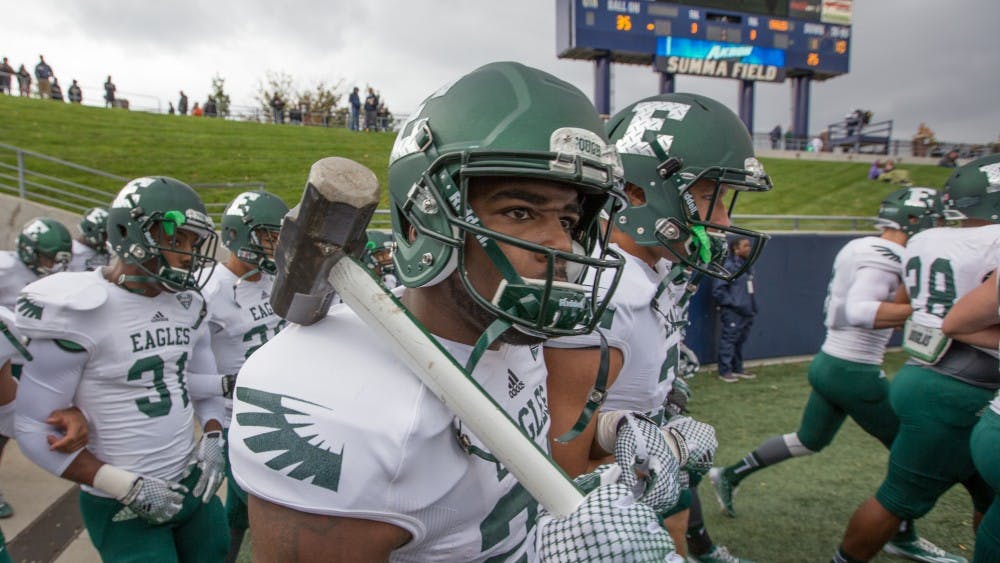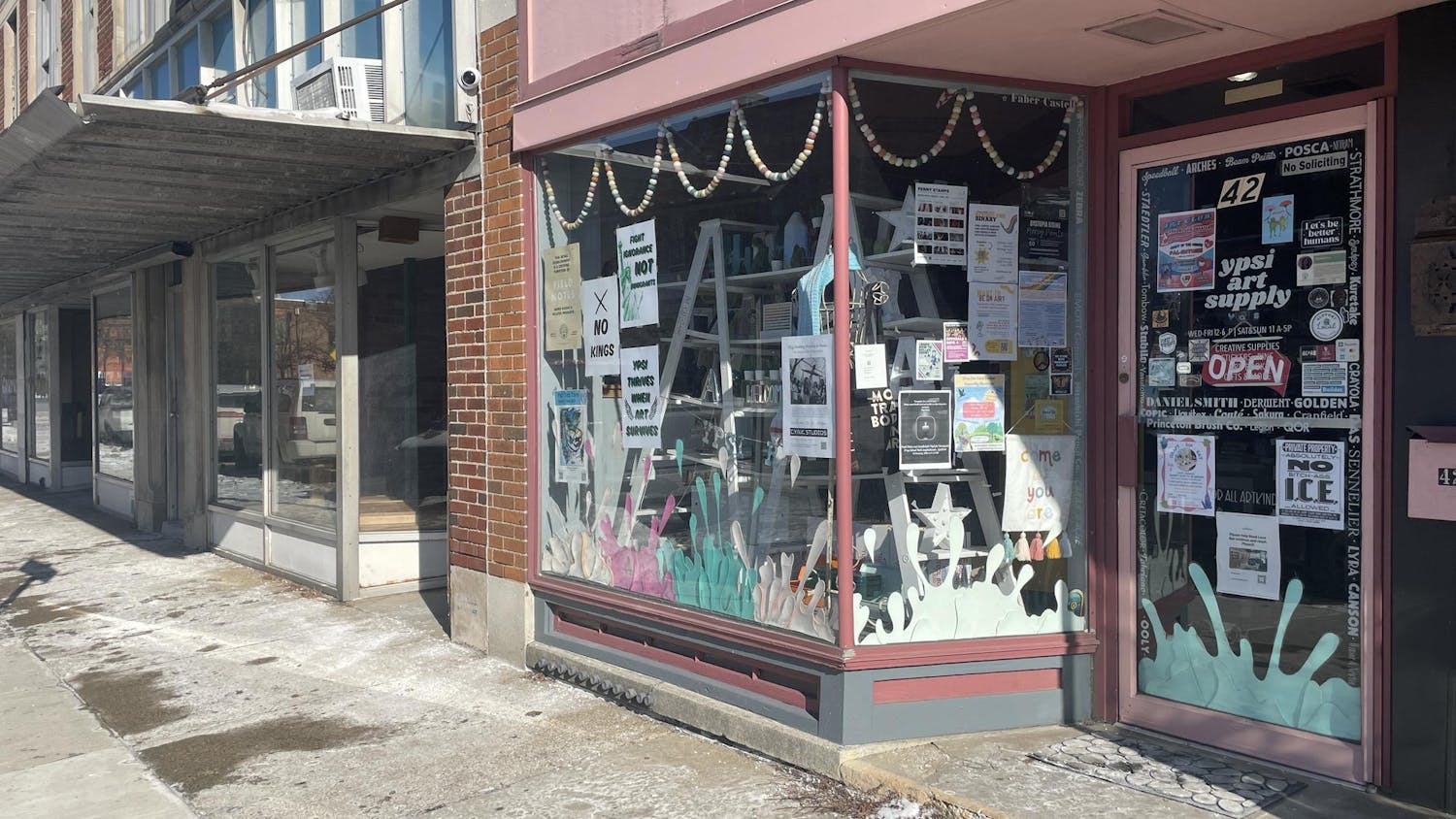The Latino Students Association and the Center for Multicultural Affairs hosted a panel of professors from around the state and held a discussion that dealt with the issue of immigration reform Monday in the Student Center.
The panel included professors of history, political science, philosophy and Latin American studies and included a debate among the panel as well as questions from the audience.
The panel consisted of professors from various universities around Michigan, including Wayne State University, University of Michigan and two of Eastern Michigan University’s own professors.
The discussion focused on the history of immigration in the United States as well as the current status of immigration and speculation about the future outlook.
Richard Stahler-Sholk, of the EMU political science department, said prior to the discussion, “One of the main goals of our panel is to inform people about some of the myths that have spread surrounding the issue of immigration.”
The panel looked at the issue from a broad range of aspects. The different strategies to reform immigration on both the left and right ends of the political spectrum were discussed as well as some of the pending legislative bills on state and federal levels. Some of the proposed plans the panel talked about included, path to citizenship, guest worker programs and stricter employer enforcement.
Anthony Mora, of the University of Michigan’s history department, informed the audience about the historical perspective of immigration in the U.S.
“Before the Southwest became U.S. territory, the Mexican government actually sealed off its border because of a fear of the influence of Americans migrating to Mexican territory and the possibility that the Mexican culture would disappear,” Mora said. “Now, it is ironic because basically the situation has totally reversed.”
Professor Stahler-Sholk added some of the historical context in the discussion and pointed out that the U.S. has had many periods throughout history in which immigrants were viewed negatively by many of the natural born U.S. citizens.
“Throughout American history, immigrant groups including Irish-Catholics, Chinese immigrants, Japanese-Americans, and Latino Americans have been scapegoated and excluded during various periods” Stahler-Sholk said.
Aside from the historical look at the issue of immigration, professor Peter Higgins of Eastern Michigan University offered a philosophical perspective on the issue, which stressed the moral and human rights concerns about American immigration policies.
“In order for someone to legally migrate to this country, they have to be relatively well-off in the first place, which is why it is more complex than just telling everyone who wants to come here to simply wait in line,” Higgins said.
The panel discussion concluded with questions from the audience, and included personal experiences of audience members. One audience member spoke about how he had members of his family who had been waiting to be granted legal status to America for 15 years.
Another student in the audience told the panel about her boyfriend who had been deported to Mexico and denied the ability to contact family or friends once Immigration and Customs Enforcement detained him.
“His 16-year-old brother was left behind after he was deported and I am trying to get him through high school so he can get a good education in the U.S. but there is so much paperwork to go through between Mexico and the U.S.,” she said.
Professor Stohler-Sholk explained it was not the first time the issue of illegal immigration had split up families.
“In recent years, there has been a significant rise in the number of Latin American children in foster care in Michigan, and there is a need for more of the human dimension to be taken into account with regards to the deportation of undocumented immigrants,” he said.
The insight provided by the panel of professors on the issue of immigration reform, as well as the personal testimonies of audience members, were fitting for October, which is recognized as National Hispanic Heritage Month in the U.S.









